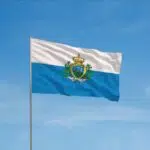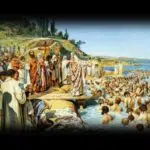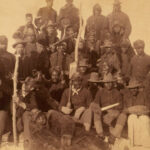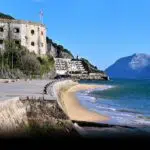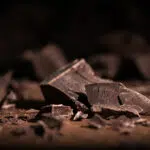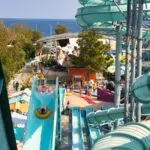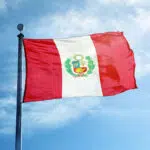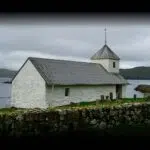St. Olav’s Eve in the Faroe Islands is celebrated on July 28 in Norway. It is celebrated one day before St. Olav’s Day, which is on July 29. St. Olav’s Day is the National Day of the Faroe Islands and commemorates King Olav the Second. King Olav was the one who brought Christianity to the islands. He became Norway’s patron saint. St. Olav’s Day has grown in popularity since the reformation. The festivities are an essential part of the Faroe Islands’ summer festival.
History of St. Olav’s Eve in Faroe Islands
St. Olav’s Eve in the Faroe Islands is held in Norway on July 28, the day before St. Olav’s Day on July 29. St. Olav’s Day or ‘Ólavsøka’ is the National Day of the Faroe Islands. Olav II Haraldsson served as the King of Norway from 1015 to 1028 and was finally killed in the battle at Stiklastað in Norway on July 29, 1030. Olav was canonized as a saint within a year of his death. In Trondheim, Nidaros Cathedral was built over his grave. His sainthood brought many pilgrims to the Cathedral. The widespread adoption of the Christian religion in Norway was strongly encouraged.
St. Olav eventually became the patron saint of Norway. In Norway, his feast day is a significant festival; the festivities are still a well-known summer festival in the Faroe Islands. Religious services mark his death anniversary. During Lavska, many Faroese people flock to the capital Tórshavn to celebrate the holiday. People dressed in the colorful Faroese national costume walk through the streets of Tórshavn. They greet friends and acquaintances and enjoy joyous celebrations.
The procession of athletes from local clubs commences with a parade of athletes from local clubs. A brass band, along with the members of the Torshavn city council and horse riders, follow these athletes in the procession. They walk down to the town square until they reach Tinganes, which is the House of Parliament Field. The Lavska officially opens when an appointed speaker delivers the annual speech.
St. Olav’s Eve in Faroe Islands timeline
Olaf II Haraldsson serves as the King of Norway.
King Olaf dies in the Battle of Stiklestad.
Norway officially becomes a dependency of Denmark.
Norway forms a union with Sweden.
St. Olav’s Eve in Faroe Islands FAQs
What is the cuisine of the Faroe Islands?
Cuisine mainly consists of seafood, fermented meat, lamb, and root vegetables.
What is the island famous for?
It is a world leader in producing sustainable electricity, with renewable energy sources accounting for more than half of total electricity production.
Who owns the Faroe Islands?
The Faroe Islands are a self-governing nation under the Kingdom of Denmark’s external sovereignty.
St. Olav’s Eve in Faroe Islands Activities
Visit Norway
You can enjoy a visit to Norway during the festival. You will enjoy the experience of the parades, songs, dances, and colorful costumes.
Read and share the importance of the holiday
Participate in the holiday by sharing it with the people around you, like your friends and family. Share the importance of the holiday with them and encourage them to participate too.
Learn about St. Olav
You can do some research to learn more about the patron saint of Norway. You can get more insights into his canonization as a saint and his life in general.
5 Interesting Facts About The Faroe Islands
They spend in Danish Krones
The Danish Krone is the monetary unit used in the Faroe Islands.
Faroese is the national language
Faroe Island's national language is Faroese, though the schools often teach in Danish.
Transport is cheap
Traveling is very cheap as buses are free, and the government provides subsidies on ferries in the capital city of Torshavn.
More sheep than people
There were more sheep on the island than people, according to the most recent census.
Whaling criticized worldwide
Whaling and capturing dolphins around the island has drawn widespread condemnation.
Why We Love St. Olav’s Eve in Faroe Islands
It creates unity
People in the country have a reason to come together for a common purpose of celebration. The festivities unite the people, and they all participate with enthusiasm.
It honors the saint
The holiday helps to keep the memory of the saint alive. It honors the work he did while he was here.
It maintains tradition
The holiday is part of Norwegian culture. Celebrating it helps to pass down culture and make younger generations aware of traditions.
St. Olav’s Eve in Faroe Islands dates
| Year | Date | Day |
|---|---|---|
| 2025 | July 28 | Monday |
| 2026 | July 28 | Tuesday |
| 2027 | July 28 | Wednesday |
| 2028 | July 28 | Friday |
| 2029 | July 28 | Saturday |

